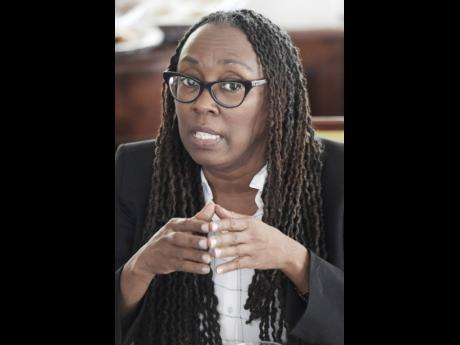Engage civil society – Calder
Jeanette Calder, executive director of the Jamaica Accountability Meter Portal (JAMP) is suggesting that the Holness administration revisit its 2016 approach on engaging civil society in a partnership as it seeks to now tackle various social ills, including the COVID pandemic.
At the same time, Principal Director of National Integrity Action Professor Trevor Munroe has argued that recent judicial decisions against the Government regarding the National Identification System and the states of public emergency confirm long-standing truths of Jamaican governance that the executive was not constitutionally the dominant, much less the sole, arm of government.
“It is co-equal with the Parliament and the judiciary, and in modern best practice, must engage civil society in meaningful partnership. Even with the best of intentions and even with some gains, underperformance is unavoidable with an exclusionary approach,” Munroe cautioned.
In his recent contribution to the Budget Debate in Parliament, Opposition Leader Mark Golding urged the Government to restart the Vale Royal talks, noting that “the lack of an effective channel of dialogue between both sides is not good for Jamaica”.
“The nation needs us to work together to tackle the current crisis. Mr Prime Minister, I urge you to do the right thing,” he declared during his presentation.
However, Calder said that the focus should not only be on a return to Vale Royals talks, but noted that in 2016. Prime Minister Andrew Holness engaged civil society in a social pact dubbed ‘Partnership for a Prosperous Jamaica’ agreement.
Representatives from the private sector, the unions, and civil society had inked the accord at King’s House. The Opposition did not show up at the time, stating that it had written to the prime minister, raising objection to the change in the name of the initiative from Partnership for Jamaica to Partnership for a Prosperous Jamaica.
The JAMP founder recounted that when the prime minister engaged civil society in 2016, he made it clear that the basis of the partnership with these critical sectors was to figure out how to move from “a win-lose to a win-win situation”.
Calder said the prime minister had also said in 2016 that the Government was grappling with deep issues of society and therefore that partnership was necessary.
“He did not say it was a nice idea or a good idea. The prime minister said it was necessary to partner with the Opposition and civil society, so the question I would have today is, do we still have deep issues to grapple with as we did in 2016?”
She contended that the then ‘deep issues’ of 2016 still existed today but were even more heightened and exacerbated by the pandemic. “There were concerns around economic growth, reduction in violence, stimulating job creation, and the last one he had mentioned was the public sector transformation, which underpins the success of all the others.”
“It can’t be anything less than all hands on deck and at a very minimum if the prime minister doesn’t engage, whether it is the Vale Royal or the partnership for transformation, he needs to tell us why this would not be an important strategy in the recovery plan,” she asserted.
Calder acknowledged that over the years, the executive arm of the Government used different vehicles to engage on public policy and finding solutions to the country’s challenges.
She said that JAMP was not particularly concerned about which council or committee would be engaged to facilitate that partnership approach. “What we want is to see it happening,” she stressed.
“It is not the intention of our democracy for our problems to be solved solely by the Cabinet. One might argue that there is room in the Parliament for those discussions to be had in relation to the kinds of discussions that the Leader of the Opposition might be interested in,” she added.
“I think it doesn’t matter which vehicle as long as we do get them in the room, and particularly at a time like this, then certainly if the prime minister doesn’t take that opportunity at a minimum, I think he would need to tell the country why that should not be a very important part of the COVID response.”
Meanwhile, Munroe said that the necessity for consensus-building, of which the Vale Royal talks was one form, became even more vital to cope with the current multi-dimensional social crisis arising from the COVID-19 pandemic, the upsurge in violent crime and the extraordinary economic hardship facing the majority of Jamaicans.
“It was past governments belated recognition that they couldn’t go it alone which allowed Jamaica to pull back from the electoral and financial precipices ,respectively , of 1979 and 2012 to stabilize the society and set world-class standards of electoral administration and economic recovery,” the NIA boss pointed out.

